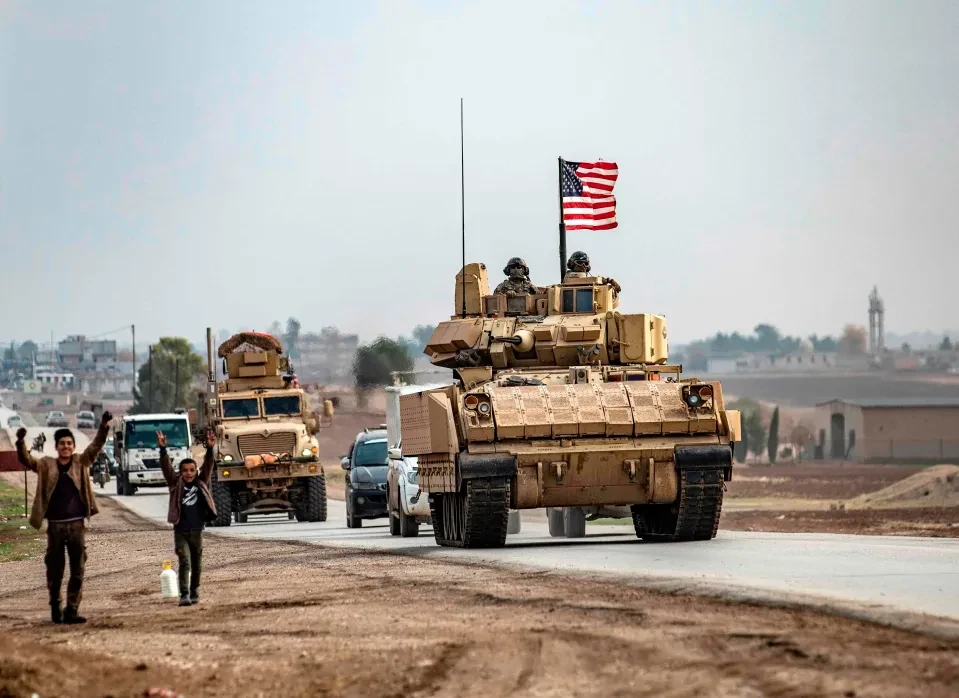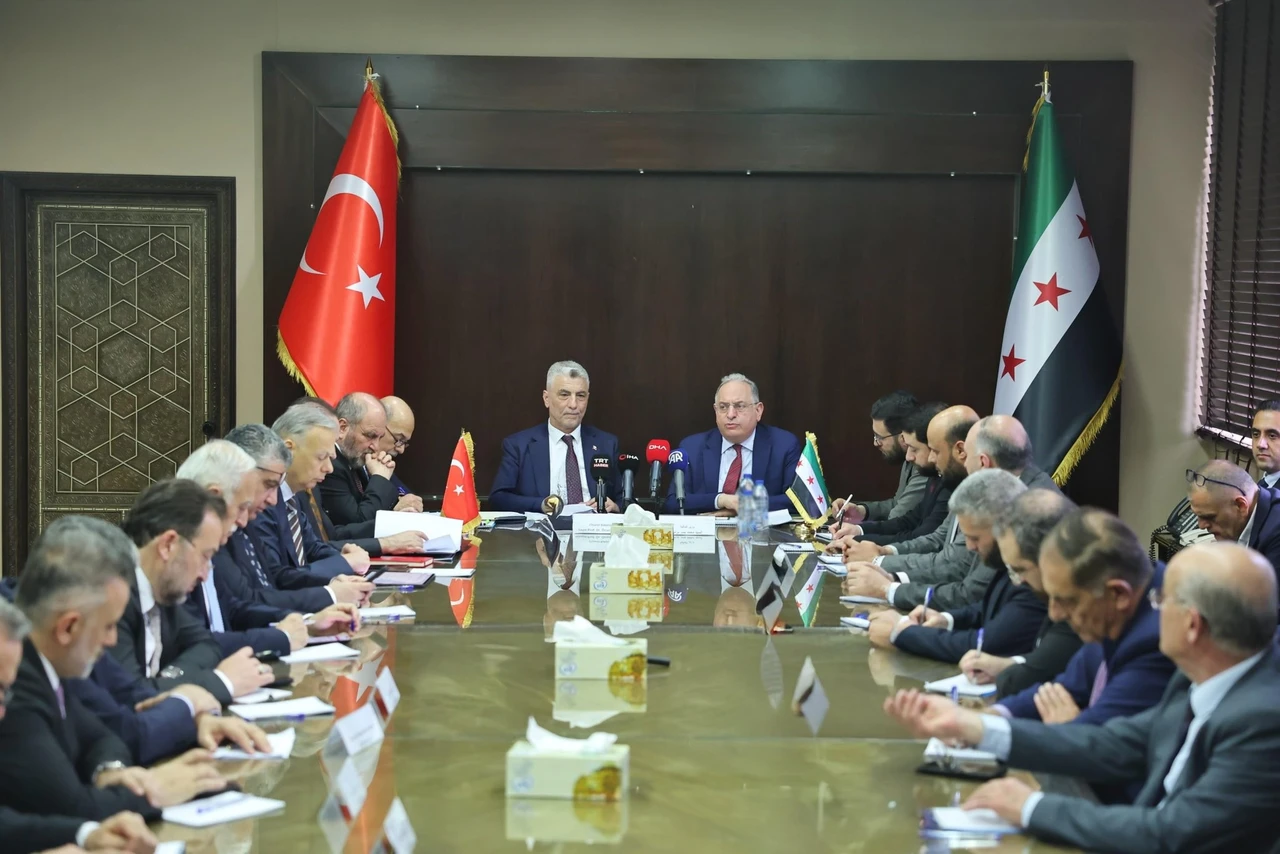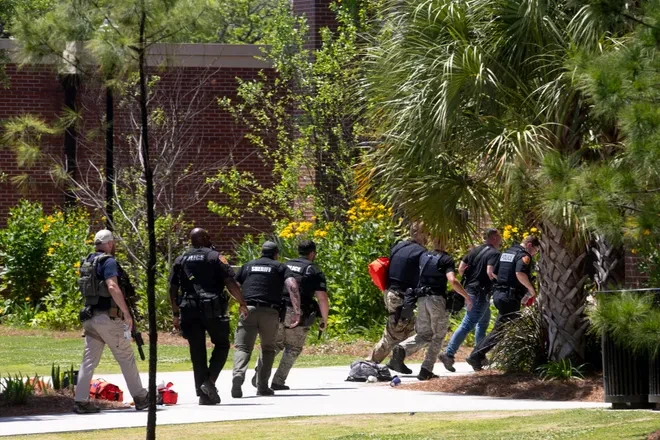Hamas says it’s ready to free all hostages if Israel ends Gaza war
 Hamas members make preparations to hand over Israeli hostages Alexandre Sasha Troufanov, Sagui Dekel-Chen and Yair Horn within the 6th round of prisoner and hostage swap deal between Hamas and Israel in Khan Yunis, Gaza on February 15, 2025. (AA Photo)
Hamas members make preparations to hand over Israeli hostages Alexandre Sasha Troufanov, Sagui Dekel-Chen and Yair Horn within the 6th round of prisoner and hostage swap deal between Hamas and Israel in Khan Yunis, Gaza on February 15, 2025. (AA Photo)
Hamas announced Thursday it is prepared to release all Israeli hostages in exchange for Israel ending its military offensive in Gaza, fully withdrawing from the territory, lifting the blockade, and allowing reconstruction to begin.
Khalil al-Hayya, Hamas’ political bureau member, stated that the group rejects any partial cease-fire deals proposed by Israel, which he claims would allow Israeli forces to resume attacks once the truce expires.
“We are ready to immediately engage in negotiations on a comprehensive package that includes ending the aggression, full withdrawal from the Gaza Strip, lifting the blockade, initiating reconstruction, and the release of all prisoners,” Hayya said in a televised statement.
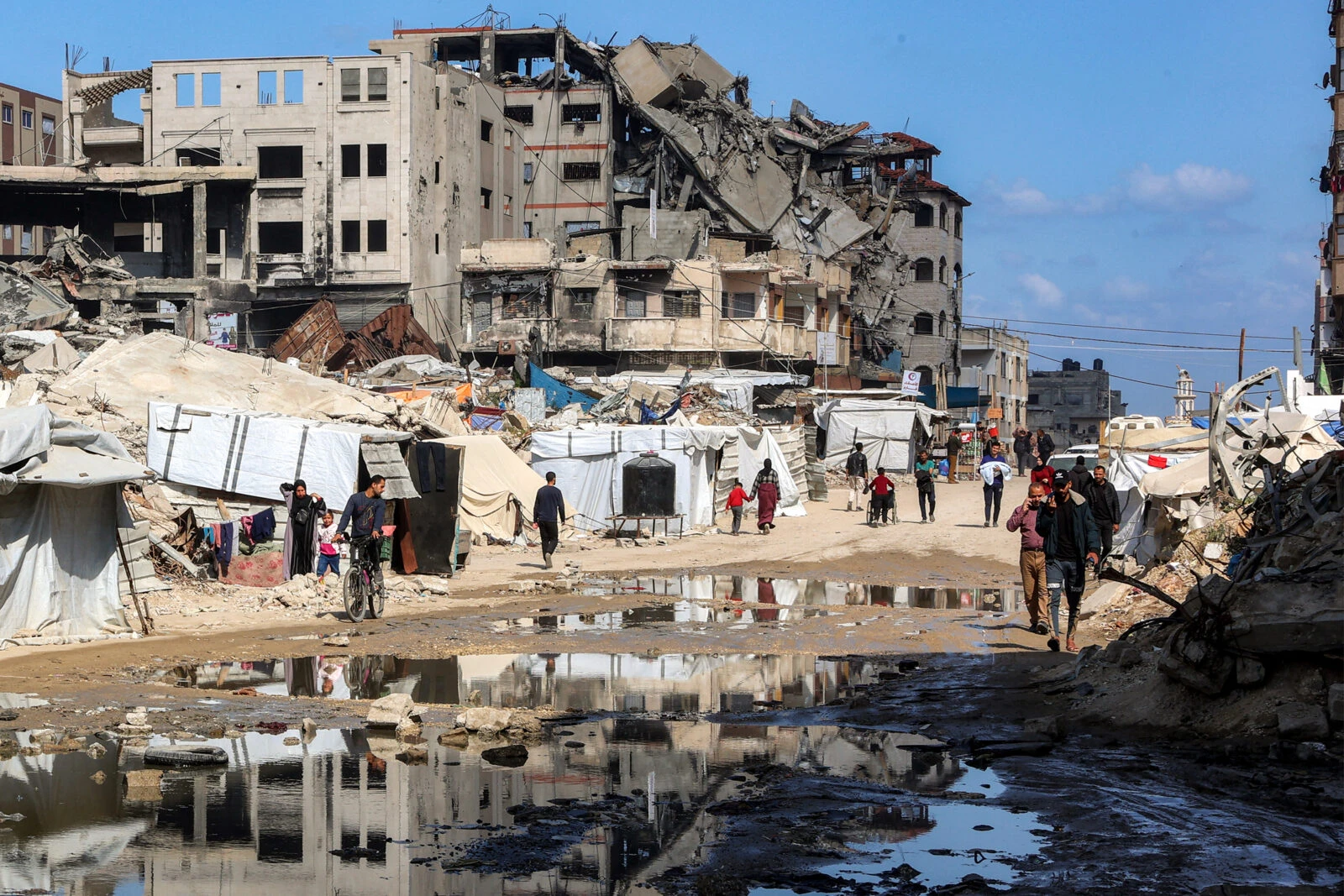
Hamas responds to Israel’s latest proposal
According to a Hamas source cited by Agence-France Presse (AFP), the group sent a written response to mediators on Thursday regarding Israel’s latest offer.
The Israeli proposal reportedly included:
- A 45-day cease-fire
- The release of 10 Israeli hostages
- The release of 1,231 Palestinian prisoners
- The entry of humanitarian aid
However, the proposal also included a demand for Hamas to disarm, a condition the group categorically rejected.
“Partial agreements are used by (Israeli Prime Minister) Benjamin Netanyahu as a cover for his political agenda … we will not be complicit in this policy,” Hayya stated.
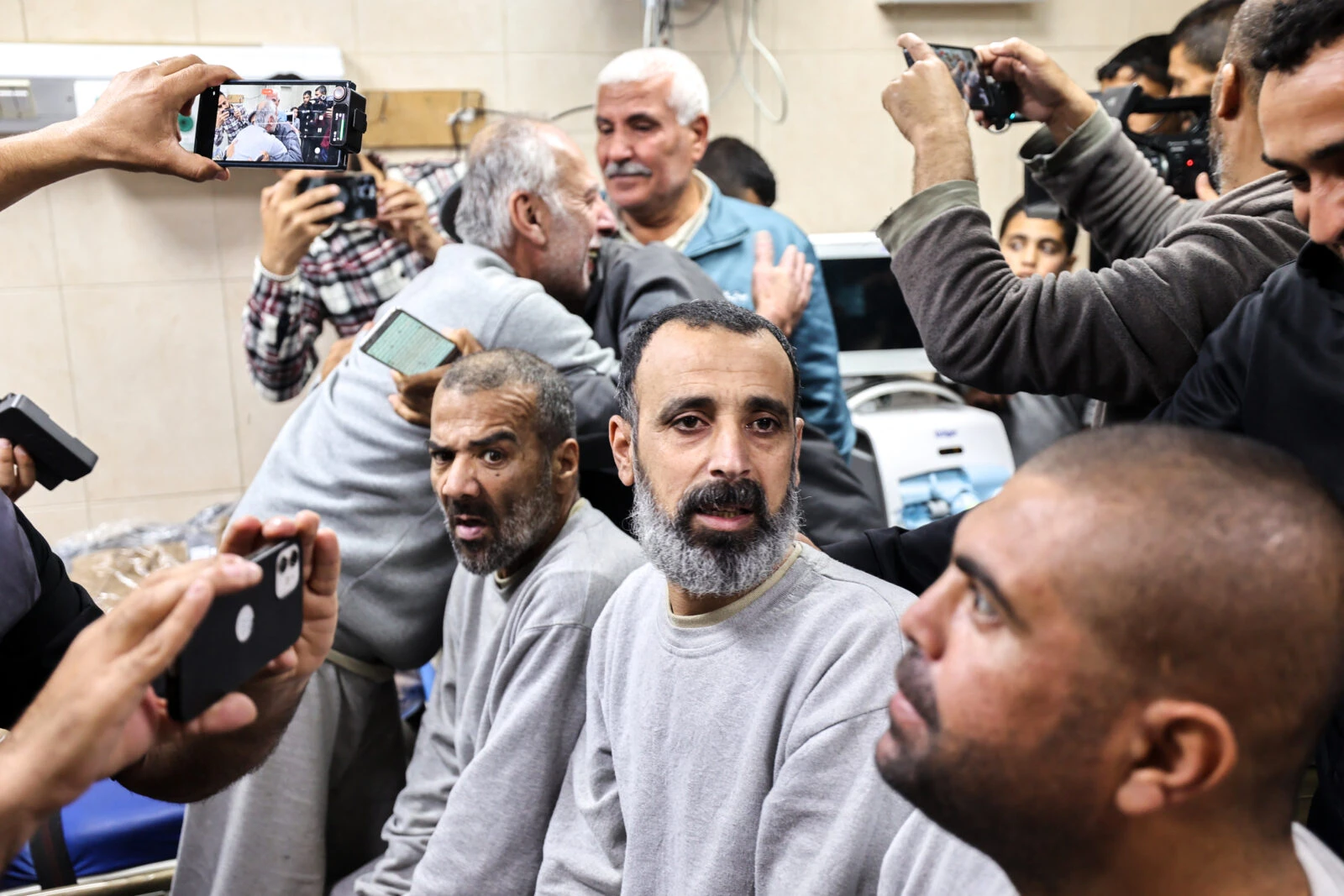
Intensified Israeli strikes draw criticism
While talks continue, the Israeli military intensified its bombardment across Gaza, with civil defense officials reporting over 40 deaths Thursday, many in displacement camps.
At least 16 people, mostly women and children, were killed when Israeli missiles struck tents in the Al-Mawasi area of Khan Yunis.
Mahmud Bassal, spokesman for Gaza’s civil defense, said two more Israeli strikes hit camps in Beit Lahia and near al-Mawasi, killing nine. Additional airstrikes in Jabalia killed at least 13 more people, including seven members of one family and six sheltering in a school.
The Israeli military said it struck a Hamas “command and control” center in Jabalia.
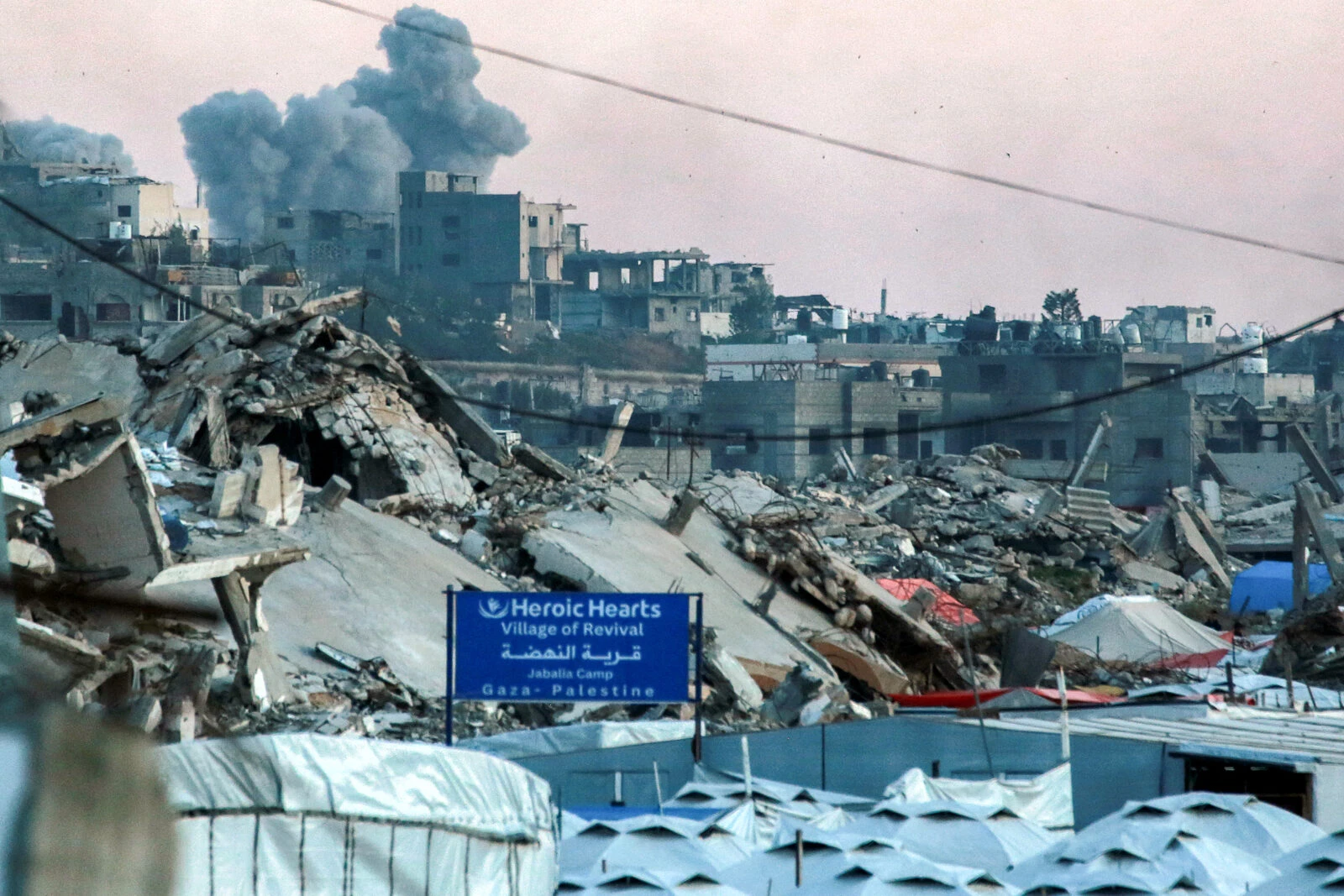
Humanitarian concerns and displacement
The United Nations reports that more than 500,000 Palestinians have been displaced since Israel resumed its offensive on March 18.
The ongoing conflict has triggered what the U.N. describes as the “most severe humanitarian crisis” since the war began.
The International Committee of the Red Cross (ICRC) reported that one of its Gaza facilities was hit by an explosive device this week—the second such incident in three weeks—and condemned the strike as unacceptable.
“We condemn in the strongest terms any action that inhibits our ability to do our work and risks the lives of humanitarian workers,” ICRC said in a statement and added, “Parties must respect and protect humanitarian workers and objects used for humanitarian relief operations.”
Medical supplies, fuel, food, and water remain critically scarce.
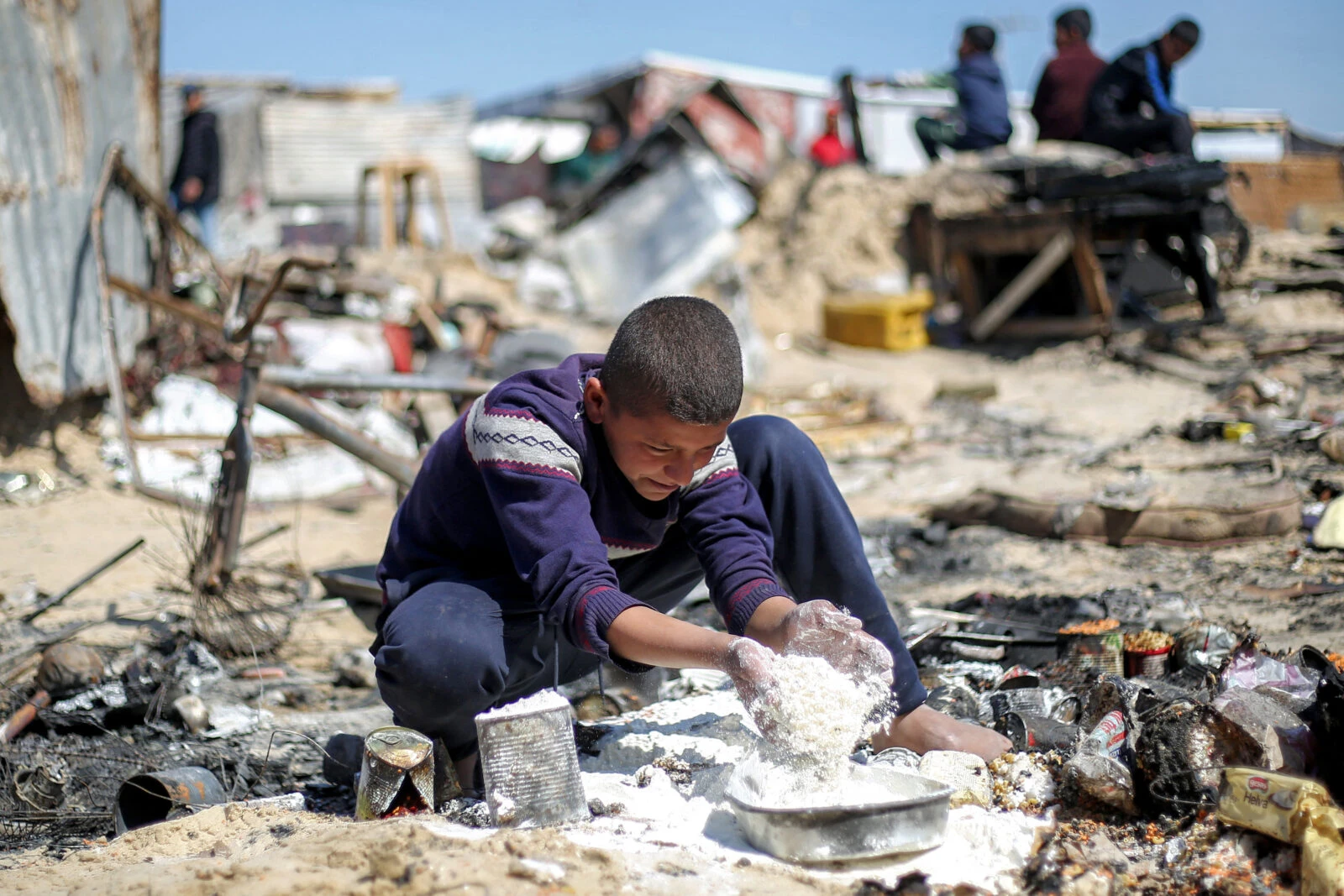
Qatar, US, and Egypt’s mediation efforts
Qatar’s Emir Sheikh Tamim bin Hamad Al-Thani blamed Israel for the breakdown of the previous ceasefire deal reached in January.
“As you know, we reached an agreement months ago, but unfortunately, Israel did not abide by this agreement,” he said during a visit to Moscow.
Hayya noted that the group welcomed the stance of U.S. hostage envoy Adam Boehler, who has supported a resolution to both the hostage and military dimensions of the conflict, describing it as aligned with Hamas’ own position.

